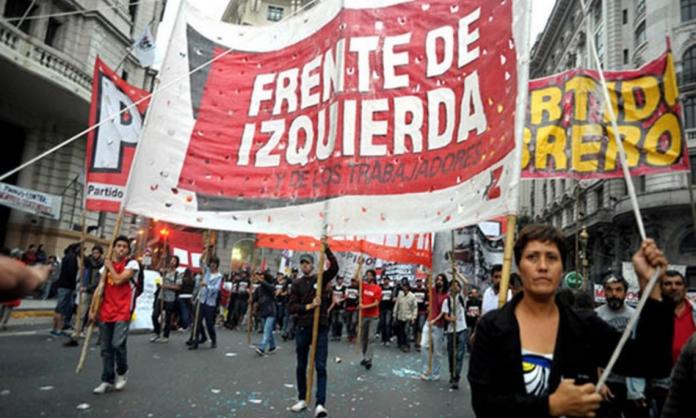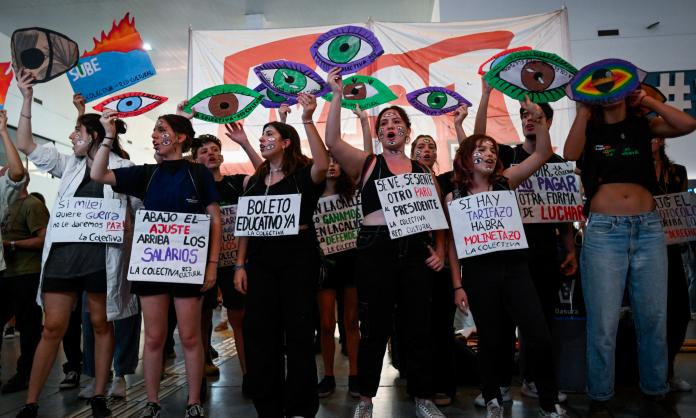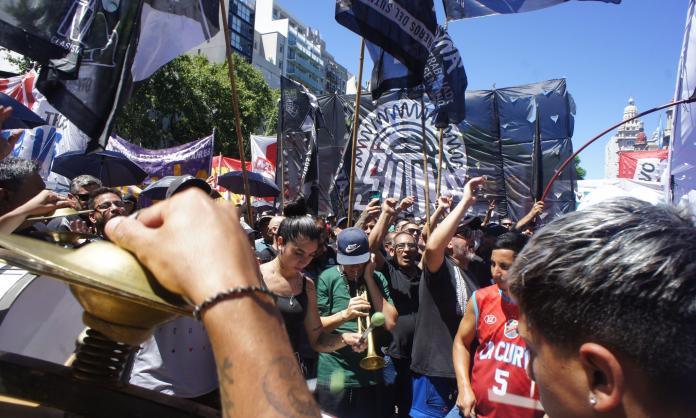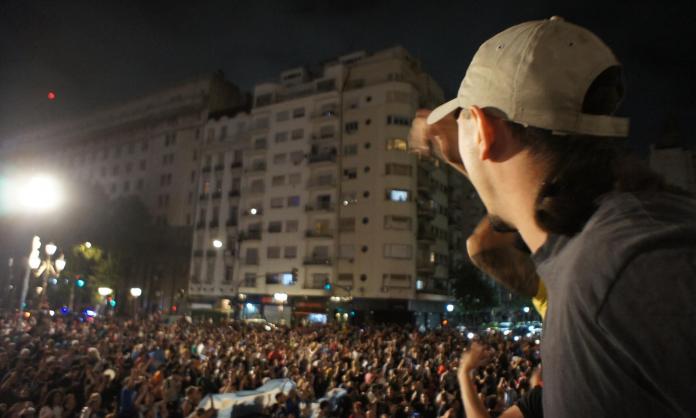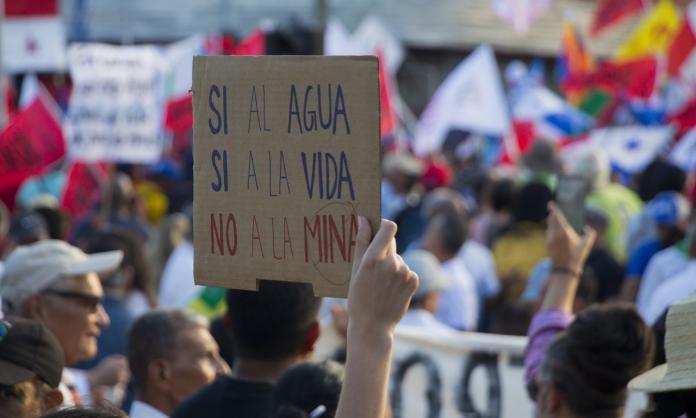The Argentine left has entered what it is calling a new period. The Workers’ Left Front—Unity (FIT-U), an electoral coalition of Trotskyist parties, won more than 1 million votes and secured more than 5 percent of the vote nationally in the September primary elections, which will be followed by mid-term congressional elections in November. The result firmly establishes the FIT-U as the third largest political force in the country and indicates that the coalition could potentially win up to six seats in Congress.
The election result was a heavy repudiation of the governing Frente de Todos (Everyone’s Front), which lost more than 4 million votes compared to the 2019 primaries, as well as losing in the key political centres of the country. The Frente de Todos, a coalition of reformist and centrist parties dominated by the Peronists, has presided over a social and economic crisis in which nearly half of the population is living in poverty and more than 114,000 lives have been lost to COVID-19.
The result is a clear reflection of a deep political polarisation in the country. The far right gained ground in some important areas. And the centre-right Juntos por el Cambio (Together for Change) coalition, led by elite businessman and former President Mauricio Macri, gained the biggest share of votes, more than 40 percent nationally, despite being resoundingly defeated at the polls not two years ago. As president, Macri presided over a disastrous four years in which Argentina received a US$57 billion International Monetary Fund loan (the biggest in the history of the IMF) and implemented austerity on the working class.
For the FIT-U, the vote is a testament to what an activist party based in the working class can achieve when it presents an uncompromising pro-worker platform.
“The program is anti-capitalist and socialist, with key policies being non-payment of the foreign debt, high taxes on the rich, reduction of the workday to six hours with equal [unchanged] salaries, expropriation of corporations, nationalisation of the banks and foreign trade, and for a government of workers”, Cele Fierro, one of the FIT-U’s candidates in Buenos Aires, says via email.
The FIT-U’s choice of candidates further reflects its activist approach to politics, nominating working-class people with proven records of social activism and trade unionism, often drawing them directly from the radical and militant layers of the country’s social movements.
Alejandro Bodart, who headed one of the FIT-U’s lists in the province of Buenos Aires, says that the role of the FIT-U’s elected representatives is “to support all social struggles and, at the same time, take the popular demands of working people to the parliamentary scene”. The coalition’s representatives will “take a salary equal to an average worker’s salary and give the rest to social struggles and the construction of the party. When their term finishes, they return to work”, Bodart says.
One example is Alejandro Vilca, an indigenous man from the province of Jujuy and formerly a garbage collector. Vilca has more than 30 years’ experience as an activist. He started out in the 1990s in campaigns against education cuts, in support of unemployed workers and against privatisations. Vilca’s employer, the municipal government, transferred him to the garbage collection department after he organised thousands of precarious health and education workers.
Since 2017, Vilca has been a member of the provincial congress of Jujuy, and has built a network of students, workers and activists who helped him win more than 23 percent of the vote in the primary elections this month. There is now a good chance that he will become the first garbage collector elected to Argentina’s national Congress—a point he made with great pride throughout the campaign.
While Trotskyism has traditionally been strong in Argentina, it has never reached this level of popular electoral strength. The growing discontent with Peronism is resulting in more space opening for the left. “It’s a key opportunity because it allows us to try to keep advancing the political independence of the Argentine working class, which, in large part, identifies with Peronism”, Fierro says.
“The upcoming period will be one of great social conflict since we have a weak government that will have to carry out the adjustment the IMF requests to renegotiate the debt, which is unpayable in current conditions. It can even be posited that the government falls before the next presidential elections in 2023 and that the country joins the wave of rebellions that have shaken Latin America since 2019”, Fierro continues.
If he is right, the FIT-U’s organisational capacity across the country as an activist political coalition would add an element to the rebellion that has not been seen in other parts of the continent.
Formed only ten years ago, the FIT-U has now grown to a point where the establishment can neither ignore nor dismiss it. With dozens of other elected positions across the country at the national, state and municipal levels, the FIT-U has a powerful political apparatus to project its platform to a wide audience while mobilising workers, students and activists across the country.
Ultimately, the success of the FIT-U comes at an important time for the left internationally. The coalition is evidence that revolutionaries, with hard work and in the right circumstances, can win a mass audience by presenting an anti-capitalist, socialist alternative that is committed to the mobilisation of the working class through both parliamentary and non-parliamentary means.




